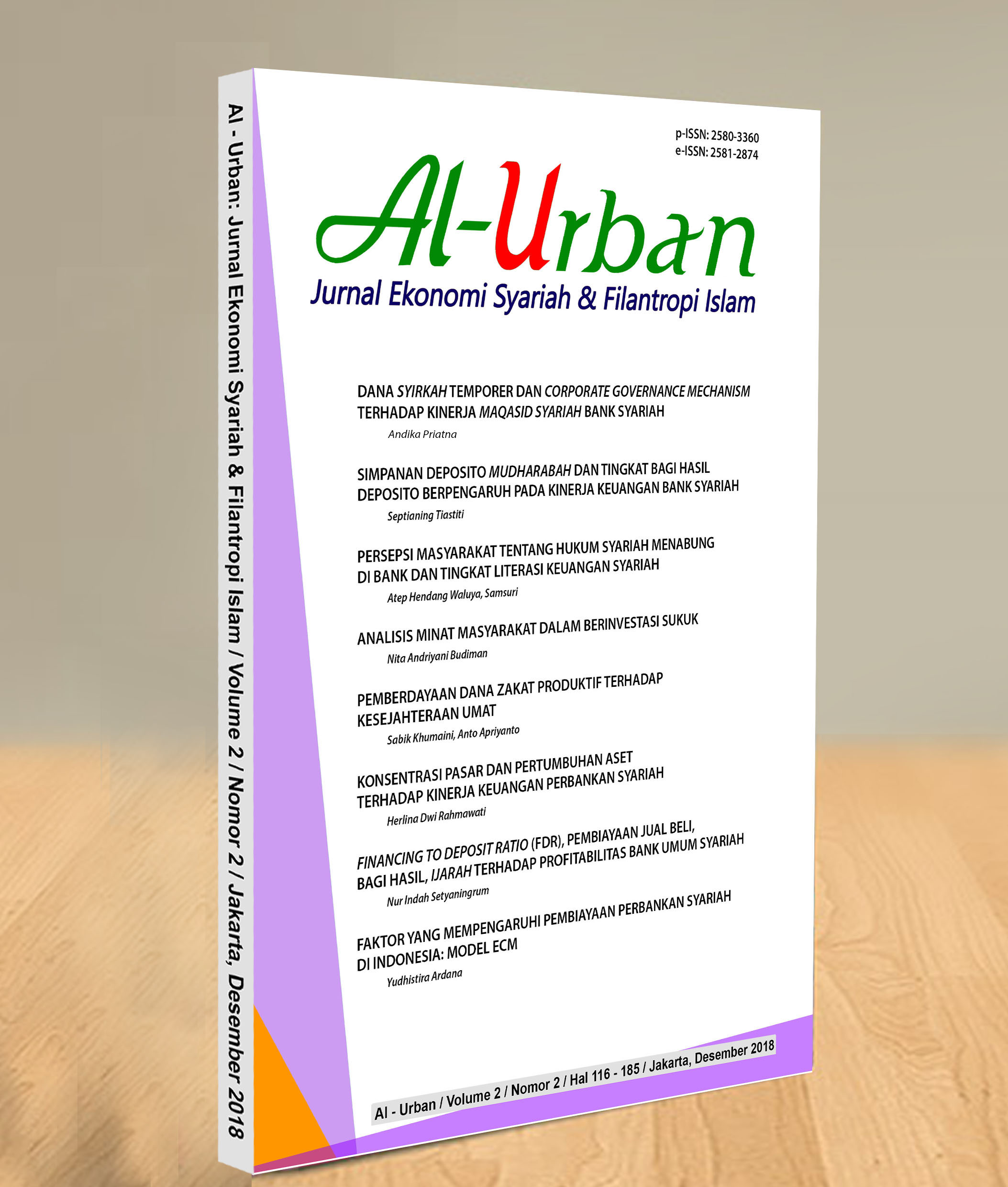Kabua Ncore Harmoni sosial budaya lokal dalam perspektif Ekonomi Islam di Masyarakat Bima
DOI:
https://doi.org/10.22236/alurban_vol8.i1/17891Keywords:
Kabua Ncore, Islamic Economics, Social Harmony, Conflict Resolution, Local CultureAbstract
This study explores the Kabua Ncore tradition in the Bima community (Mbojo ethnic group) from an Islamic economic perspective. As a form of local wisdom, Kabua Ncore serves not only to resolve social conflicts but also to promote social harmony grounded in justice-based cultural and economic values. Using a phenomenological approach, the research highlights the tradition’s alignment with Islamic economic principles, such as social justice, solidarity, and collective resource management. Practices like Mbolo Rasa, Doho Sara, and Teka Ra Nee illustrate mutual cooperation and assistance. The involvement of religious leaders and socio-religious activities strengthens social harmony and prevents communal conflicts. Economically, Kabua Ncore enhances social capital and promotes equitable resource distribution, reflecting Maqashid Syariah values, particularly in preserving wealth, life, and relationships. The study recommends revitalizing this tradition as a sustainable solution to modern socio-economic challenges in the Bima community
Downloads
References
Abdurrahman, M. M., & Mondika, A. A. (2023). Sistem Ekonomi Islam Dan Kesejahteraan Sosial. JEBESH Journal Of Economics Business Ethnich and Science Histories, I(1), 140–147.
Adar BakhshBaloch, Q. (2017). Analisa struktur kovarians indikator terkait kesehatan pada lansia yaang tinggal di rumah, dengan fokus pada rasa subjektif terhadap kesehatan. 11(1), 92–105.
Ahmadin, A. (2017). Konflik Sosial Antar Desa Dalam Perspektif Sejarah Di Bima. Jurnal Ilmiah Mandala Education, 3(1), 224. https://doi.org/10.58258/jime.v3i1.47
Arihan, Ahmad Zuber, B. H. (2018). Resolusi Konflik Komunal antara Masyarakat Desa Ngali dan Renda Kecamatan Belo, Kabupaten Bima Provinsi Nusa Tenggara Barat (NTB). Sodality: Jurnal Sosiologi Pedesaan, 6, 146–154.
Asshobirin, M. P., & Robbani, M. I. (2024). IMPLEMENTASI PRINSIP-PRINSIP EKONOMI SYARIAH. 9(2), 147–161. https://doi.org/10.35329/jalif.v9i2.5316
C, & Haeril, H. (2021). Resolusi Konflik Berbasis Pemberdayaan Masyarakat di Desa Rato Kecamatan Lambu Kabupaten Bima. Journal of Governance and Local Politics (JGLP), 3(1), 48–62. https://doi.org/10.47650/jglp.v3i1.181
Djamil, F. (2017). Mencari Format Hukum Islam Yang Progresif Berkearifan Lokal: Pendekatan Socio-Cultural Dan Maqashid Al Syariah. Kordinat: Jurnal Komunikasi Antar Perguruan Tinggi Agama Islam, 16(1), 1–14. https://doi.org/10.15408/kordinat.v16i1.6450
Ernawam, D. (2017). Pengaruh Globalisasi terhadap Eksistensi Kebudayaan Daerah di Indonesia. Jurnal Kajian Lemhannas RI, 32(1), 1–54.
Fahma, F., & Safitri, D. (2024). Dinamika Identitas Budaya dalam Era Globalisasi: Tantangan dan Kesempatan Media Sosial terhadap Budaya Masyarakat Lokal: Dynamics of Cultural Identity in the Era of Globalization: Challenges and Opportunities for Social Media on Local Community Culture. Jurnal Intelek Dan Cendikiawan Nusantara, 1(3), 3675–3682. https://jicnusantara.com/index.php/jicn/article/view/423%0Ahttps://jicnusantara.com/index.php/jicn/article/download/423/496
Kumar, M., Talib, S. A., & Ramayah, T. (2012). Business Research Methods , OXFORD University Press , ISBN : 978 983 47074 77. December, 18–19.
Lukman. (2018). Desintegrasi Sosial Budaya. Risâlah, Jurnal Pendidikan Dan Studi Islam, 4(2), 64–73. https://doi.org/10.5281/zenodo.3555397
Luna-Nemecio, J., Tobón, S., & Juárez-Hernández, L. G. (2020). Sustainability-based on socioformation and complex thought or sustainable social development. Resources, Environment and Sustainability, 2(July), 100007. https://doi.org/10.1016/j.resenv.2020.100007
Muhammad Dani Putra Wijaya, Rhesty Panca Mei Saputri, & Agus Danugroho. (2023). Konflik Disintegrasi Di Indonesia Dan Dampaknya Bagi Nasionalisme Bangsa Indonesia. Antroposen: Journal of Social Studies and Humaniora, 2(2), 116–128. https://doi.org/10.33830/antroposen.v2i2.5472
Nasution, R. D. (2017). Pengaruh Modernisasi dan Globalisasi terhadap Perubahan Sosial Budaya di Indonesia. Jurnal Penelitian Komunikasi Dan Opini Publik, 21(1), 30–42.
Nuranisa, N., Aprilia, A., Halimah, S. N., & Mandasari, M. (2023). Kepercayaan Masyarakat Adat dan Modernisasi di Kampung Naga Desa Neglasari Kecamatan Salawu Kabupaten Tasikmalaya. Jurnal Dinamika Sosial Budaya, 25(2), 337. https://doi.org/10.26623/jdsb.v25i4.8088
Oria, E., Oria, H., Susanta, H., & Wijayanto, A. (2024). “Ekonomi Islam Untuk Keadilan Sosial Dan Kesejahteraan, Cuplikan Dari Sejarah Hidup Nabi Muhammad Saw.” Jurnal Istiqro, 10(2), 164–176. https://doi.org/10.30739/istiqro.v10i2.3077
Punch, K. F. (2013). Keith F Punch THEORY AND METHOD IN SOCIAL SCIENCE RESEARCH.
Rafiuddin. (2024). TRADISI KABUA NCORE DALAM MASYARAKAT BIMA SEBAGAI SARANA RESOLUSI KONFLIK SOSIAL Rafiuddin 1 , Husnatul Mahmudah 2 1,2. 19, 127–142. https://doi.org/10.52266/tadjid.v8i2.3239
Rosana, E. (2015). Ellya Rosana, Konflik Pada Kehidupan,...... Al-AdYan, 10(2), 216–230.
Sahrul, S., & Mustafa Umar. (2021). Profil Konflik Sosial Di Kecamatan Belo Kabupaten Bima. Jurnal Ilmu Administrasi Negara, 18(1), 31–42. https://doi.org/10.59050/jian.v18i1.136
Sartini, & Adf. (2020). Menggali Kearifan Lokal Nusantara Sebuah Kajian Filsafati. Jurnal Filsafat, 37(2), 111–120. https://jurnal.ugm.ac.id/wisdom/article/view/33910/20262
Suciarti, F., Darwis, & Nurbayan, S. T. (2022). Solidaritas Tradisi Kelompok Weha Rima Pada Petani di Era New Normal (Studi Pada Petani PErempuan di Desa Talapiti Kecamatan Ambalawi Kabupaten Bima). Journal Jurnal Pendidikan Sosiologi Universitas Pendidikan Ganesha, 4(3), 96–101.
Sudrajat, B., Yasin, R., Marlvasha, L. S., Manajemen, P., Syariah, B., & Tengah, J. (2024). Peran Tradisi Gotong Royong Dalam Meningkatkan. 04(02).
Sukmayadi, T., & Suyitno, S. (2022). Kontribusi Nilai-Nilai Kearifan Lokal dalam Budaya Tradisi Macanan dan Kawin Cai Untuk Menguatkan Identitas Nasional Indonesia (Studi Kasus di Desa Adiraja Kabupaten Cilacap dan Desa Babakan Kabupaten Kuningan). Sabda: Jurnal Kajian Kebudayaan, 17(1), 22–32. https://doi.org/10.14710/sabda.17.1.22-32
Downloads
Published
How to Cite
Issue
Section
License
Copyright (c) 2024 Al-Urban: Jurnal Ekonomi Syariah dan Filantropi Islam

This work is licensed under a Creative Commons Attribution 4.0 International License.
The Author submiting a manuscript do so on the understanding thet if accepted for publication, copyright of the article shall be assigned to Al-Urban: Jurnal Ekonomi Syariah dan Filantropi Islam, Faculty of Economics and Business, University of Muhammadiyah Prof. DR. HAMKA.
Copyright encompasses exclusive right to reproduse and deliver the article in all form and media, including reprint, photographs, microfilms and any other similar reproductions, as well as transalations. The reproduction of any part of this journal., its storage in database and its transmission by any form or media such as electronic, electrostatic and mechanical copies, photocopies, recordings, magnetic media, etc..will be









